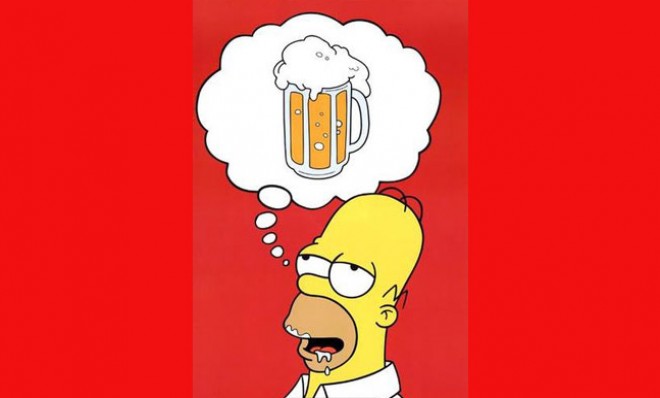Study: Even a sip of beer can trigger dopamine release
PET scans show that just a small amount of brew can light up the brain's pleasure centers

A free daily email with the biggest news stories of the day – and the best features from TheWeek.com
You are now subscribed
Your newsletter sign-up was successful
Not everyone loves the taste of beer, but nonetheless, a new study suggests that letting the sudsy stuff tickle your taste buds can trigger very positive reactions in the brain's pleasure centers... even when alcohol is removed from the equation.
According to the new study, published in the journal Neuropsychopharmacology, giving participants a small taste of the beer they enjoy the most was correlated with the release of dopamine, "a neurotransmitter that helps control the brain's reward-and-pleasure centers," says U.S. News.
Neurologists at Indiana University enlisted 49 men — all right handed, since left-handed people's brains are wired slightly different — with an average age of 25, and gave them small samples of either their favorite beer or Gatorade. At the same time, their brains were hooked up to a Positron Emission Tomography (PET) scanner.
The Week
Escape your echo chamber. Get the facts behind the news, plus analysis from multiple perspectives.

Sign up for The Week's Free Newsletters
From our morning news briefing to a weekly Good News Newsletter, get the best of The Week delivered directly to your inbox.
From our morning news briefing to a weekly Good News Newsletter, get the best of The Week delivered directly to your inbox.
Here are the specifics, per the AFP:
The beer was rationed out in tiny amounts — just 15 milliliters, or about one tablespoon, every 15 minutes — so that the brain could be scanned without the influence of alcohol.
Just a taste of the beer lit up dopamine receptors, and the effect was far greater than for Gatorade, even though many volunteers said they preferred the taste of the [sports drink], the investigators found. [AFP]
Interestingly, the mere taste of beer triggered a dopamine release far greater among participants with a family history of alcoholism. "We believe this is the first experiment in humans to show that the taste of an alcoholic drink alone, without any intoxicating effect from the alcohol, can elicit this dopamine activity in the brain's reward centers," David Kareken, a professor of neurology who led the experiments, tells the AFP.
Outside scientists say the findings make sense. "It's one of the first pieces of research that tests whether the flavor of something affects behavior," Dr. Scott Krakower, medical director of the Mineola Community Treatment Center in Mineola, N.Y., tells U.S. News. "People tell me they can't be around alcohol at all because it immediately triggers them to start drinking."
From a neuroscience perspective, the findings suggest that the way the brain's reward system is wired could help explain why people continue to drink when they shouldn't. From a genetic standpoint, the study might even demonstrate why some former alcoholics are more susceptible to relapse than others.
A free daily email with the biggest news stories of the day – and the best features from TheWeek.com
Still a mystery, however, is why anyone would voluntarily drink an O'Douls.
-
 How the FCC’s ‘equal time’ rule works
How the FCC’s ‘equal time’ rule worksIn the Spotlight The law is at the heart of the Colbert-CBS conflict
-
 What is the endgame in the DHS shutdown?
What is the endgame in the DHS shutdown?Today’s Big Question Democrats want to rein in ICE’s immigration crackdown
-
 ‘Poor time management isn’t just an inconvenience’
‘Poor time management isn’t just an inconvenience’Instant Opinion Opinion, comment and editorials of the day